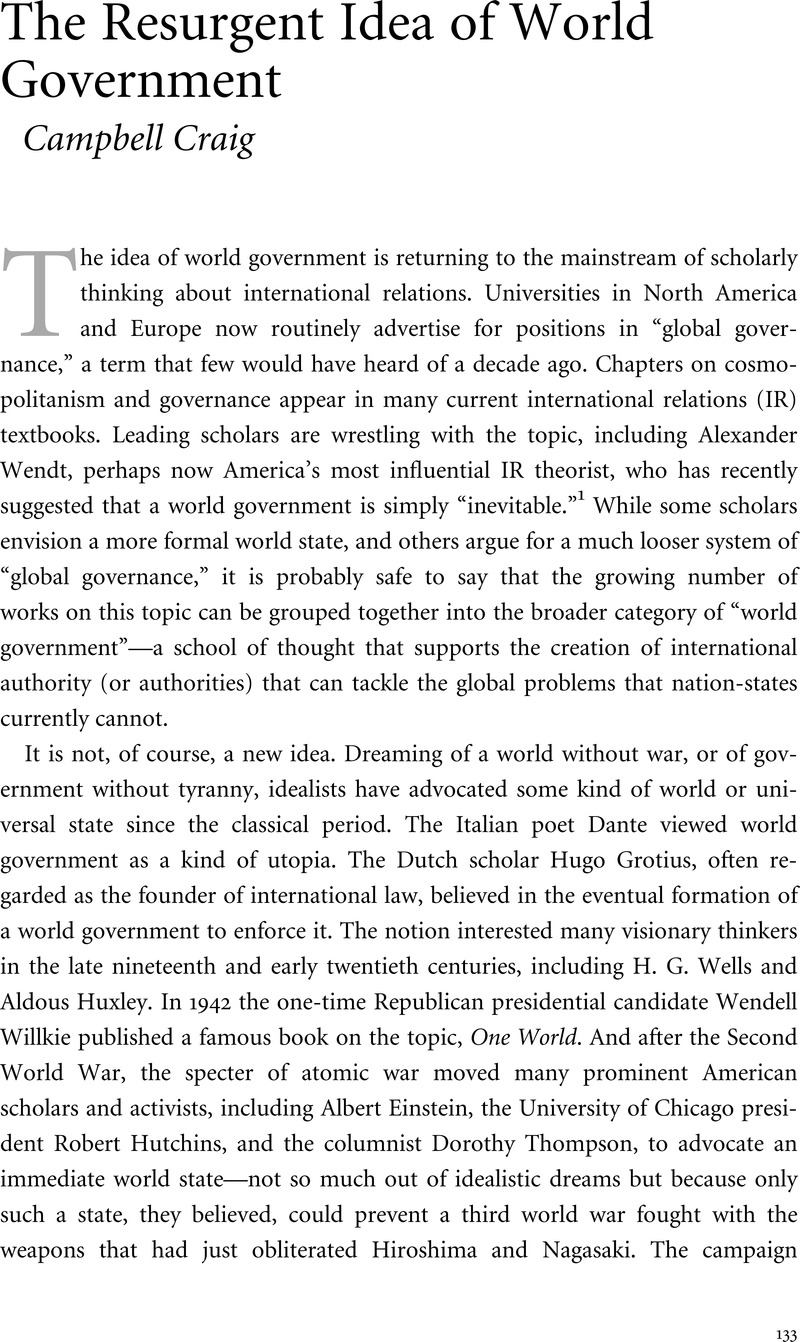Published online by Cambridge University Press: 25 March 2011

1 Alexander Wendt, “Why a World State Is Inevitable,” European Journal of International Relations 9, no. 4 (2003), pp. 491–542. For a more extensive discussion of new scholarship on world government, see especially Catherine Lu, “World Government,” in Edward N. Zalta, ed., The Stanford Encyclopedia of Philosophy (Winter 2006 Edition); available at http:\\plato.stanford.edu/entries/world-government/.
2 See Paul Boyer, By the Bomb's Early Light: American Thought and Culture at the Dawn of the Atomic Age (New York: Pantheon, 1985); and Luis Cabrera, “Introduction,” in Cabrera, ed., Global Government/Global Governance, forthcoming.
3 Campbell Craig and Sergey Radchenko, The Atomic Bomb and the Origins of the Cold War (New Haven, Conn.: Yale University Press, 2008).
4 Martin Amis, Einstein's Monsters (London: Jonathan Cape, 1987), pp. 16–17.
5 Keir Lieber and Daryl Press, “The End of MAD?: The Nuclear Dimension of U.S. Primacy” International Security 30, no. 4 (2006), pp. 7–44. Lieber and Press do not advocate an American first strike against a potential aggressor; they simply argue that the United States has developed a capability to do so.
6 For an overview of McGrew's and Held's positions, see Anthony McGrew and David Held, eds., Governing Globalization (London: Polity, 2002), chaps. 13 and 15. Also see Andrew Hurrell, On Global Order (New York: Oxford University Press, 2007). American scholars in favor of global governance include Richard Falk, On Humane Governance (University Park: Pennsylvania State University Press, 1995); and Anne-Marie Slaughter, A New World Order (Princeton, N.J.: Princeton University Press, 2005). For an innovative treatment of the problem of global democracy, see Luis Cabrera, Political Theory of Global Justice: A Cosmopolitan Case for the World State (London: Routledge, 2004).
7 See Wendt, “Why a World State Is Inevitable,” p. 506.
8 Ibid., especially pp. 507–10 and 514–16. For the argument that world government would threaten cultural pluralism, see Michael Walzer, Arguing About War (New Haven, Conn.: Yale University Press, 2004).
9 Daniel H. Deudney, Bounding Power: Republican Security Theory from the Polis to the Global Village (Princeton, N.J.: Princeton University Press, 2006).
10 For example, Niall Ferguson, Colossus: The Rise and Fall of the American Empire (New York: Penguin, 2004).
11 Deudney, Bounding Power, esp. chap. 6 and conclusion.